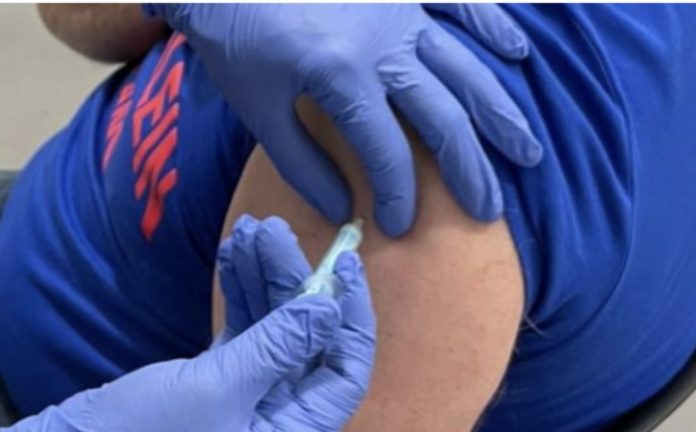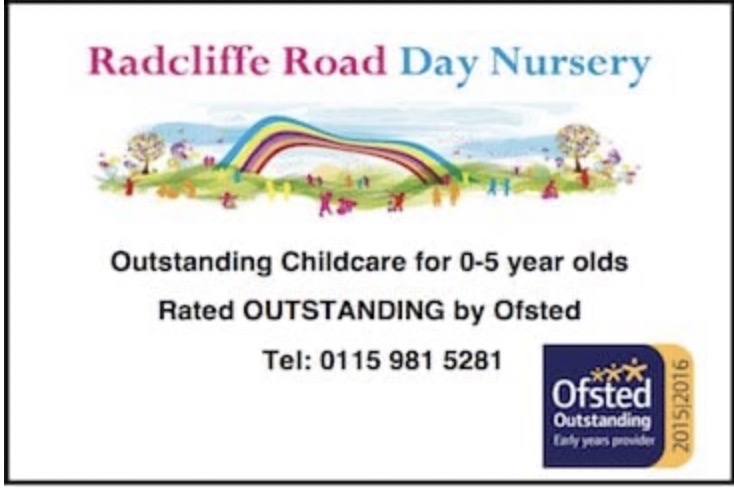The UK Health Security Agency (UKHSA) is urging all eligible groups to make sure that they are up to date with their vaccinations in the run up to Christmas, as levels of respiratory viruses including flu and RSV continue to increase.
The vaccinations offered for flu, RSV and COVID-19 help provide the best protection against severe illness and hospitalisation. Flu causes thousands of hospitalisations every year and RSV is the leading cause of infant mortality globally, which highlights why UKHSA is calling on eligible groups to get vaccinated.
For RSV, pregnant women are offered the vaccine from 28 weeks and it is recommended during every pregnancy to help provide the best protection for newborn babies. The latest maternal RSV coverage data was also published this week, showing that 55.6% of babies born in July were protected by maternal vaccination. also impacts older adults and can cause severe illness, which is why those aged 75 to 79 or who turned 80 years old after 1 September 2024 are also offered the vaccine.
Those who are eligible for the flu vaccine are at most risk of serious complications from flu. This includes everyone over 65, those who are pregnant, or those with certain long-term health conditions.
Parents are reminded to sign and return consent forms to schools for children in reception to year 11, or to book an appointment at their GP for children aged 2 to 3, to ensure their child gets vaccinated against flu. Pregnant women can also get vaccinated through maternity services.
While COVID-19 activity continues to decrease, we still advise those vulnerable in eligible groups to get the COVID-19 vaccine, to reduce the risk of severe illness.
In the week between 17 and 23 November 2025:
- influenza activity increased and is circulating at low levels
- COVID-19 activity decreased across most indicators and is at baseline levels
- respiratory syncytial virus (RSV) activity increased and is circulating at low-medium levels
The flu, COVID-19 and RSV surveillance report and the national norovirus and rotavirus surveillance reports: 2025 to 2026 season are published weekly.
Flu surveillance data for week 46 (17 to 23 November)
In week 46:
- flu activity increased and is circulating at low levels
- flu positivity increased slightly to 11.6% compared with 10.7% in the previous week
- overall, flu hospitalisations were increasing at 4.56 per 100,000 from 3.39 per 100,000 in the previous week
For the 2025 and 2026 season’s vaccination programme, children and pregnant women have been eligible since 1 September, with other groups eligible from 1 October.
Up to the end of week 47 (23 November), vaccine uptake stands at:
- 35.1% in those aged under 65 years with one or more long term health conditions
- 33.9% in all pregnant women
- 69.6% in all those aged over 65 years
- 39.8% in children aged 2 years and 40.3% in children aged 3 years
Respiratory Syncytial Virus (RSV) surveillance data for week 46 (17 to 23 November)
In week 46:
- RSV activity increased and is circulating at low-medium levels
- the overall weekly hospital admission rate for RSV was increasing at 2.54 per 100,000 compared with 1.77 per 100,000 in the previous week
- emergency department attendances for acute bronchiolitis increased
Due to technical issues with DataMart, RSV laboratory surveillance was not updated this week. Among all tested samples in primary care, 12.4% were positive for RSV compared with 7.1% in the previous week.
COVID-19 surveillance data for week 46 (17 to 23 November)
In week 46:
- COVID-19 activity decreased across most indicators and is at baseline levels
- COVID-19 positivity decreased to 2.2% from 3.3% in the previous week
- COVID-19 hospitalisations were decreasing at 0.85 per 100,000 compared with 1.13 per 100,000 in the previous week
- COVID-19 ICU admissions remained low at 0.02 per 100,000 compared with 0.04 per 100,000 in the previous week
Dr Conall Watson, Consultant Epidemiologist at UKHSA:
“With less than 4 weeks until Christmas, when we will see many people mixing more indoors, we’re urging all those eligible to get vaccinated against flu and RSV as soon as possible to ensure they’re protected against severe illness this winter. Both flu and RSV levels have increased again in the past week and we expect to see infections rise further as people gather and celebrate indoors. It can take around 2 weeks for immunity from the flu vaccine to reach its best, which is why it’s important to get booked in for your vaccine as soon as possible.
“Vaccination can make all the difference in preventing severe illness and hospitalisation for those eligible. If you haven’t yet, please make an appointment with the NHS. Rising RSV admissions are an important reminder of the importance of RSV vaccination in pregnancy to protect newborns.
“There are also simple steps we can all take to help protect one another ahead of the festive period. If you have flu or COVID-19 symptoms – including a high temperature, cough and feeling tired or achy – you should try to minimise contact with others, especially those more vulnerable.
“Washing hands regularly and ensuring indoor spaces are well ventilated both help. If you have symptoms and need to go out, consider wearing a face covering.”
Norovirus surveillance data between weeks 46 to 47 (10 to 23 November)
In week 46:
- norovirus activity has decreased in recent weeks but remains within expected levels
- total norovirus laboratory reports between weeks 46 and 47 of 2025 were 31.0% lower than the 5-season average for the same 2-week period
- total rotavirus laboratory reports between weeks 46 and 47 of 2025 were 50.6% higher than the 5-season average for the same 2-week period
- the number of norovirus outbreaks reported to the Hospital Norovirus Outbreak Reporting System (HNORS) since the start of the 2025/2026 season is 40.8% lower than the 5-season average
- during the 2025/2026 season to date, the majority (84.8%) of samples characterised were norovirus genogroup 2 (GII), of which the most frequent genotype identified was GII.4 (31.3%)
- in recent weeks GII.4 has emerged as the predominant genotype and detections of GII.17 have decreased
Amy Douglas, Lead Epidemiologist at UKHSA, said:
“Norovirus activity has remained within expected levels in recent weeks, but it’s important to remember the simple steps we can take to prevent the spread of norovirus.
“At the moment the highest rate of cases is in children so if your child has any symptoms, please keep them off school or nursery until 48 hours after their symptoms stop.
“If you’re unwell, don’t go to work or prepare food for others until 48 hours after your symptoms end and avoid visiting hospitals and care homes to prevent spreading the infection to vulnerable people.”
Washing your hands with soap and warm water and using bleach-based products to clean surfaces will also help stop infections from spreading. Alcohol gels do not kill norovirus so don’t rely on these alone.









